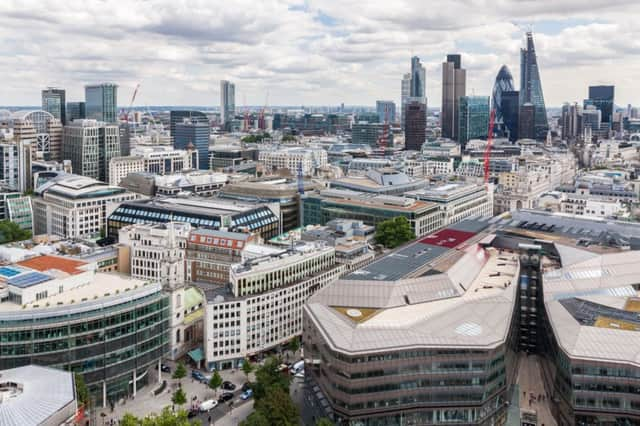Tax dodging bill is equitable move
This article contains affiliate links. We may earn a small commission on items purchased through this article, but that does not affect our editorial judgement.


In the run-up to the General Election, Oxfam is urging politicians from all parties to commit to the introduction of a new Tax Dodging Bill within the first 100 days of the next government.
Every party should be judged on their commitment to taking practical measures to tackle this crucial issue rather than on the strength, or passion, of their pre-election speeches.
Advertisement
Hide AdAdvertisement
Hide AdSuch a bill – introduced swiftly by whoever forms the next UK government – would begin to rebuild the public’s battered confidence in a tax system badly undermined by a series of high-profile revelations.
In a just tax system everyone – individuals and corporations alike – should pay their fair share. But it is all too clear that some wealthy individuals and corporations have sought to manoeuvre through, and round, the labyrinth of lax tax rules to avoid paying their fair share.
The allegations that HSBC’s Swiss banking arm helped wealthy customers dodge taxes and conceal millions of euros in accounts up to 2007, are just the latest to erode trust in the system.
Other leaked documents reveal global firms – including household names in the UK – channelled nearly £140 billion through the European tax haven of Luxembourg over eight years to cut their tax.
Those who oversee the UK’s flawed tax system cannot keep complaining, yet continually fail to act. They must instead commit to reforming our out-dated tax rules – starting with those which allow big companies to pay less tax than they should. The case for doing so is simply overwhelming.
If wealthy individuals and corporations do not pay the tax they should, the government is deprived of revenue to invest in essential services, which we all need, in the fight against poverty.
Around 13 million people, including 3.7 million children, live below the poverty line in the UK; at the latest count, some 820,000 of them are here in Scotland.
Meanwhile, the gap between the rich and the rest continues to widen. Today, the rich can already buy longer, safer lives and better education while those without money, and the enhanced influence it often yields, are much more likely to be denied even basic rights.
Advertisement
Hide AdAdvertisement
Hide AdToday’s levels of extreme inequality hurt the poorest twice – they get a smaller share of the pie and, because extreme inequality damages economic growth, there’s a smaller pie to share around.
Yet, as Professor Joseph Stiglitz from the Scottish Governments’ Council of Economic Advisers, states: “Inequality is not inevitable… it is something that we create, by our policies, by what we do.”
One way to start to even up things up is to ensure everyone pays their fair share of tax.
That is why Oxfam supports the Tax Dodging Bill Campaign.
Through bolder action against corporate tax dodging, this bill will bring in at least £3.6 billion in additional revenue for the UK; this extra money should be spent on reducing poverty.
The bill will also do more to deter UK-based multinationals from dodging tax in developing countries. Tax secrecy currently obscures the true scale of this issue, but estimates suggest poor countries could be losing out on as much as $160bn a year in potential revenue due to tax dodging. Yet, globally, more than one billion people still live on less than $1.25 a day with – across poor countries – roughly the same number denied the health services they so badly need.
Again, this is under-pinned by extreme inequality: Oxfam’s recent research showed that, on current trends, the richest 1 per cent will own the same wealth as the rest of the global population combined by 2016.
To prevent developing countries losing out, companies should have to publish their taxes, profits and other key data for each country in which they do business.
HMRC must also be given the additional resources it needs to crack down harder on tax dodging. But, of course, we need global action on tax too.
Advertisement
Hide AdAdvertisement
Hide AdOxfam is calling for a World Tax Summit to take place during the United Nations Financing for Development Conference in Ethiopia this July.
We want world leaders to create a new global tax body with every country – rich and poor – given an equal say in rewriting the rules to ensure multinational companies pay their fair share of tax.
The UK can only be a credible voice at a global level if it no longer acts as a tax haven at home. By tightening our own tax system, the UK can set the bar higher for global reform.
• Jamie Livingstone is head of Oxfam Scotland. To find out more about Oxfam Scotland visit: www.oxfam.org.uk/scotland/blog
SEE ALSO